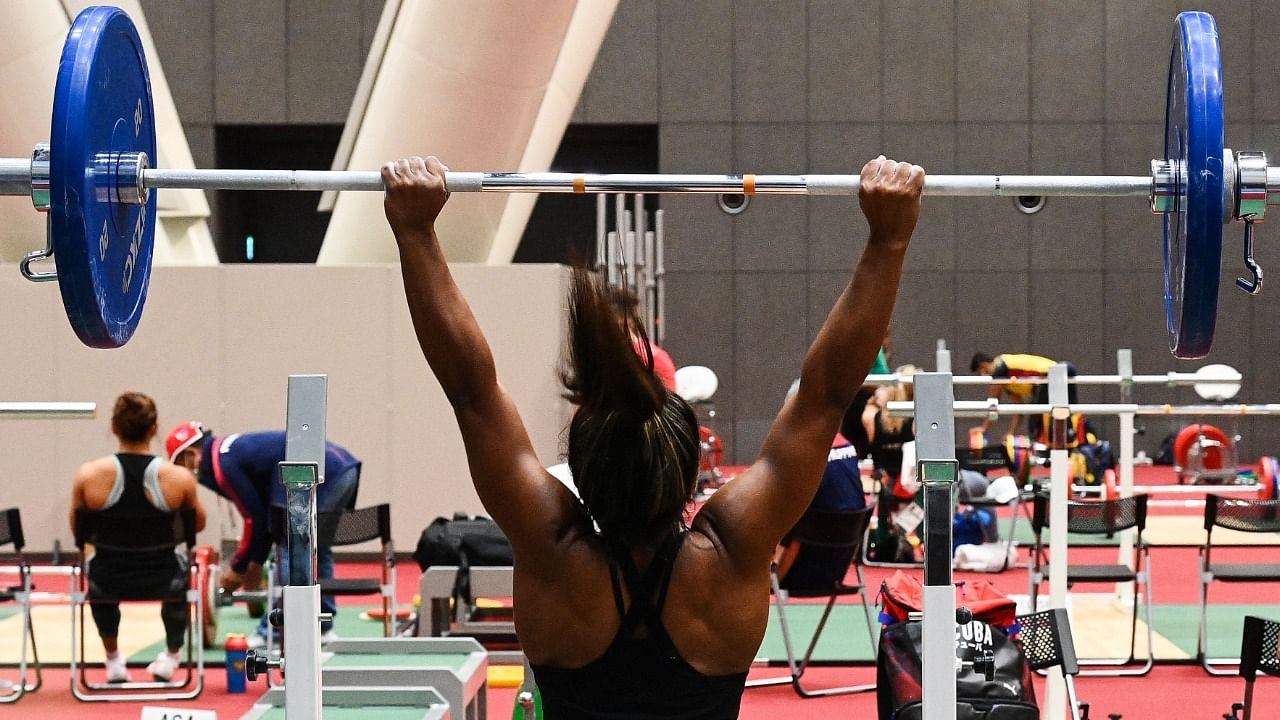
Weightlifting faces a fight for its Olympic future at the Tokyo Games, following decades dogged by corruption and doping scandals.
A pure strength and technique event, exemplifying the Olympic motto of "Citius, Altius, Fortius" -- "Faster, Higher, Stronger" -- it was one of the original sports at the first modern Olympics in 1896.
But 125 years later it faces expulsion from Paris 2024 with the International Olympic Committee (IOC) repeatedly warning the International Weightlifting Federation (IWF) that the sport's Olympic status is hanging by a thread.
Weightlifting desperately needs a clean Games, but even that may not be enough to save it from the axe.
"The situation is becoming more and more grave," warned the IOC President Thomas Bach at the end of February.
"The executive committee expresses its extreme concern at the lack of significant changes with regard to the management and the culture within the IWF," Bach said.
"Many requested changes have been ignored by the IWF despite all the warnings we issued."
The IOC's patience has clearly almost run out for a sport that has recorded 110 doping offences at the Olympics -- more than a quarter of the total ever recorded across all sports -- and has seen 49 athletes stripped of their medals, according to an AFP count.
In order to distance itself from doping, weightlifting first changed all its bodyweight categories after the 1992 Barcelona Games so new "clean" records would be set.
Sadly, the exercise had to be repeated in 1998 and again after the Asian Games of 2018.
"If these concerns are not addressed in a satisfactory and timely way, the IOC executive committee will have to review the place of weightlifting on the programme of the Paris 2024 and future Olympic Games."
An explosive documentary by German TV channel ARD in January 2020 blew the lid off what it described as a "culture of corruption" running through the sport.
High-level athletes, it alleged, had been allowed to skirt doping controls and had seen their adverse test results altered in exchange for bribes.
Tamas Ajan, the IWF's long-standing Hungarian president, rejected the accusations as "lies" before resigning.
Five months later, Canadian lawyer Richard McLaren delivered a damning report spotlighting 40 positive doping controls that had been covered up by the IWF, and ex-boss Ajan.
The IOC ordered the IWF to implement wide-ranging reforms and last month it held a one-day congress to try to ratify a new constitution, but it ended in a stalemate.
The IWF will reportedly reconvene in Doha in August to try again, but unless the deadlock can be broken -- and with more than 50 member federations reportedly dissenting that looks unlikely -- weightlifting could find itself out of the Olympic fold.
It will hardly come as a surprise because, even before the ARD revelations, powerhouse lifting nations such as China, Russia, Belarus, Kazakhstan and Turkey had all suffered suspensions from international competition for repeated doping violations.
Weightlifters from Thailand, Egypt, Malaysia and Romania will not be on the stage at the Tokyo International Forum for the same reason.
And even if these Olympics, which begin on Saturday and run until August 4, go off without a doping hitch, Paris 2024 will still see a reduced weightlifting programme.
The IOC has already decided to shed four of the 13 weight divisions contested in Tokyo with the number of athletes slashed from 196 to 120. In Rio five years ago there were 260.
But Tokyo looks increasingly like being weightlifting's Olympic swansong if the IWF cannot get its tainted house in order.
"Some sports are considered to be more at risk than others (from doping) and, of course, the emphasis is on them," Olivier Niggli, the general manager of WADA, told AFP ahead of the Tokyo Games.
"Weightlifting is one of them."